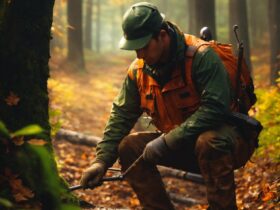When venturing into the forest for a hike or camping trip, it’s always important to be prepared for the unexpected. One crucial aspect of preparedness is having access to food in case of an emergency or getting lost. While many people may pack granola bars or trail mix, it’s also possible to find nourishment from nature’s bounty in the forest.
The forest is full of edible plants, nuts, and berries that can provide sustenance in a survival situation. Knowing what to look for and how to safely identify edible plants is key to foraging for food in the wild. Some common edible plant species found in forests include dandelion, chickweed, plantain, and wild strawberries. Nuts such as acorns, chestnuts, and hickory nuts are also abundant in many forested areas.
It’s important to do thorough research and possibly take a foraging class before relying on wild plants for sustenance. Some plants may look similar to edible varieties but can be toxic if consumed. Additionally, it’s crucial to be aware of any potential allergens or sensitivities you may have to certain plants.
In addition to plants and nuts, the forest also provides a wealth of protein sources. Insects such as crickets, grasshoppers, and mealworms can be found in abundance and are a good source of protein. They can be eaten raw or cooked over a fire for a crunchy snack.
For those with the skills and equipment, hunting and fishing can also provide sustenance in the forest. Small game such as rabbits, squirrels, and birds can be hunted with a bow and arrow or slingshot. Fishing in streams and rivers can yield trout, bass, and other fish that can be cooked over a fire for a nutritious meal.
In a survival situation, it’s important to stay hydrated as well. Luckily, clear running water is abundant in most forests and can be safely consumed with a portable water filter or by boiling it over a fire.
While foraging for food in the forest can be a rewarding experience, it’s important to approach it with caution and respect for the environment. Only take what you need and leave plenty for the wildlife and other foragers. With the right knowledge and preparation, nature’s bounty can provide nourishment and sustenance in even the most challenging of situations.





Leave a Reply